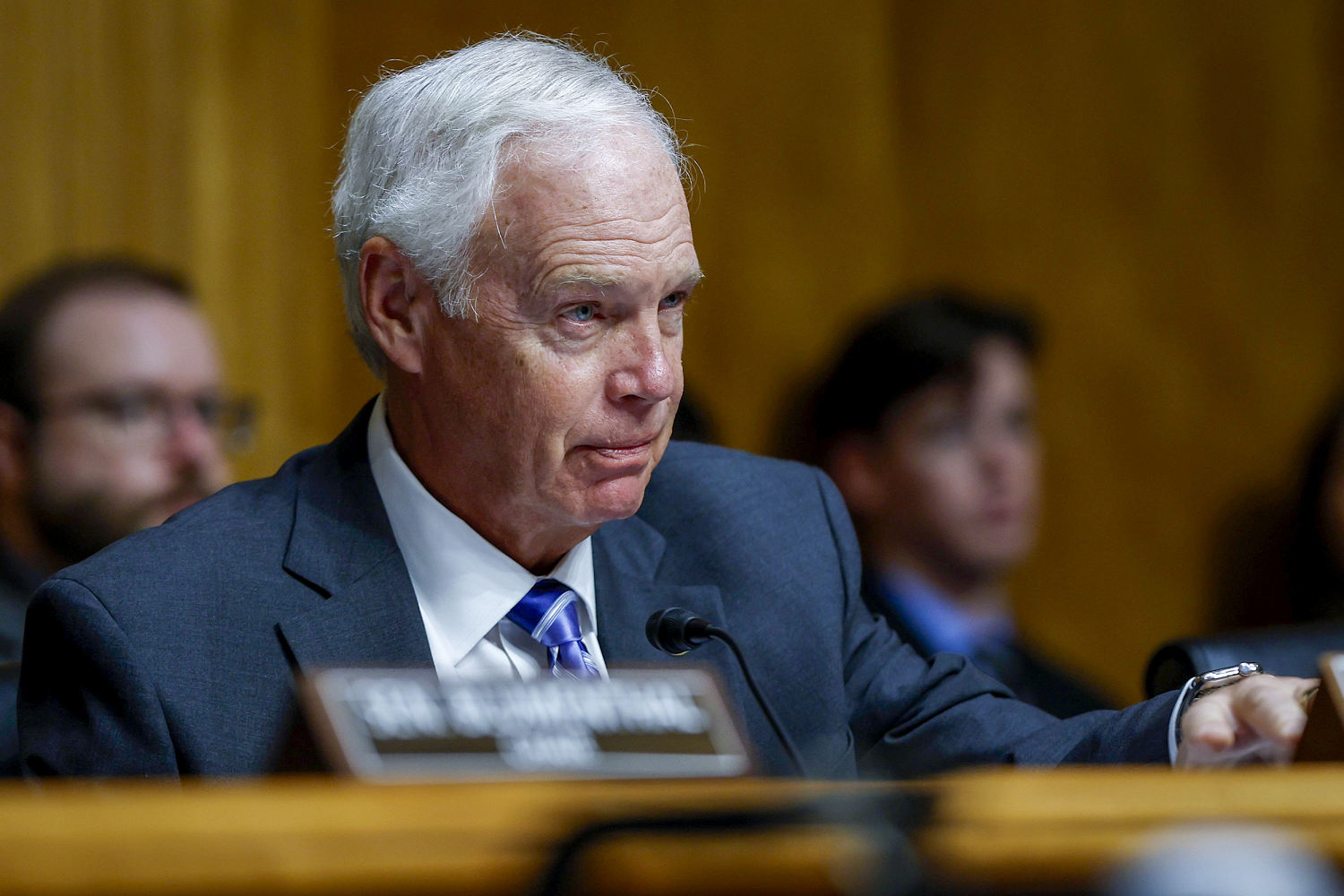We won’t accept your Trump agenda bill without changes

WASHINGTON — As House Republicans scramble to corral the votes to pass a massive bill for President Donald Trump’s agenda, their Senate counterparts are making clear the emerging package won’t fly as written when it reaches them.
Sen. John Hoeven, R-N.D., was categorical that the product coming out of various House committees cannot pass the Senate as it currently stands.
“No. We’ll make changes,” Hoeven said. “We’ve been talking with the House and there’s a lot of things we agree on. … But there’ll be changes in a number of areas.”
It wouldn’t surprise House members to learn that their Senate colleagues want to put their own fingerprints on the final multitrillion-dollar package. But Republican senators have already begun to identify a variety of provisions in the House measure that they’re targeting for revisions — from Medicaid concerns to clean energy funding to spectrum policy and overall red ink.
Sen. Ron Johnson, R-Wis., came out against the emerging House legislation this week, saying it will explode the U.S. budget deficit.
“I don’t see any scenario where it’s going to be deficit-neutral. That’s my problem,” he told NBC News. “By my calculation, this is going to increase the deficit by $4 trillion.”
“The amount that they’re looking to reduce spending is about 1.3%. It’s a rounding error. It’s completely inadequate,” Johnson said as he insists federal spending be at least lowered to pre-pandemic levels.
Republicans have 53 senators, meaning they can only lose three votes before the bill collapses int he chamber, as they have no hope of winning Democrats. They’ve already lost Sen. Rand Paul, R-Ky., who wants steeper cuts. And Democrats are dialing up the heat on GOP attempts to cut energy funding in the Inflation Reduction Act, highlighting the 2022 law’s economic and national security benefits.
Sen. Lisa Murkowski, R-Alaska, led a letter to Senate Majority Leader John Thune, R-S.D., last month with three other Republicans warning that “termination” of certain clean energy tax credits enacted in 2022 “would create uncertainty, jeopardizing capital allocation, long-term project planning, and job creation in the energy sector and across our broader economy.”
The House committee tasked with writing the tax provisions of the package is seeking to repeal significant subsidies for electric vehicles and aims to phase out other clean energy tax incentives that were passed in the Inflation Reduction Act, which was signed into law by then-President Joe Biden.
On Wednesday, Murkowski told NBC News she, John Curtis, R-Utah, Thom Tillis, R-NC, and Jerry Moran, R-Kansas, “made clear that we needed to take a cautious approach to the energy tax credits and make sure that we don’t lose out on some of the good investments that we built.”
Sen. Josh Hawley, R-Mo., has also been warning against Medicaid cuts as the House bill seeks to impose work requirements and provider funding limits that have been panned by critics.
“I will not support Medicaid benefit cuts,” Hawley told NBC News on Tuesday, adding that he has “concerns with pieces” of the House bill because of what it would mean to rural hospitals in his state.
He later wrote on X: “I don’t want to see rural hospitals close their doors because funding got cut. I also don’t like the idea of a hidden tax on the working poor. That’s why I’m a NO on this House bill in its current form.”
Hawley’s concerns are shared by Murkowski as well as Sen. Susan Collins, R-Maine, who voted against the budget framework last month, citing concerns about Medicaid cuts harming her state.
Another issue Senate Republicans want to revise are provisions that House Energy and Commerce Chair Brett Guthrie, R-Ky., said would renew “the Federal Communications Commission’s spectrum auction authority and provide resources to modernize federal information-technology systems,” and save $88 billion.
“I’ve had a chance to actually look at the language on the spectrum issue. It clearly has to be corrected,” said Sen. Mike Rounds, R-S.D.
Sen. Deb Fischer, R-Neb., said the policy needs “to go much further, much further” and she “cannot accept it as it came out of the” House Energy and Commerce Committee.
Speaker Mike Johnson, R-La., is hoping to steer the measure through the House Budget Committee on Friday and pass the entire bill through the chamber — with some changes — before Memorial Day.
Sen. Thom Tillis, R-N.C., who faces re-election next year in a competitive state, said the Senate will need to review the House language on Medicaid cuts, clean energy money and other policies before making a decision.
Tillis also said the Senate isn’t enthused by the draft House bill’s policy to raise the cap on the state and local tax deduction to $30,000, up from $10,000. Unlike in the House, there are no GOP senators in the high-tax blue states where “SALT” is a big issue.
“I think that’s an area where we’re going to need some consideration,” Tillis said.



